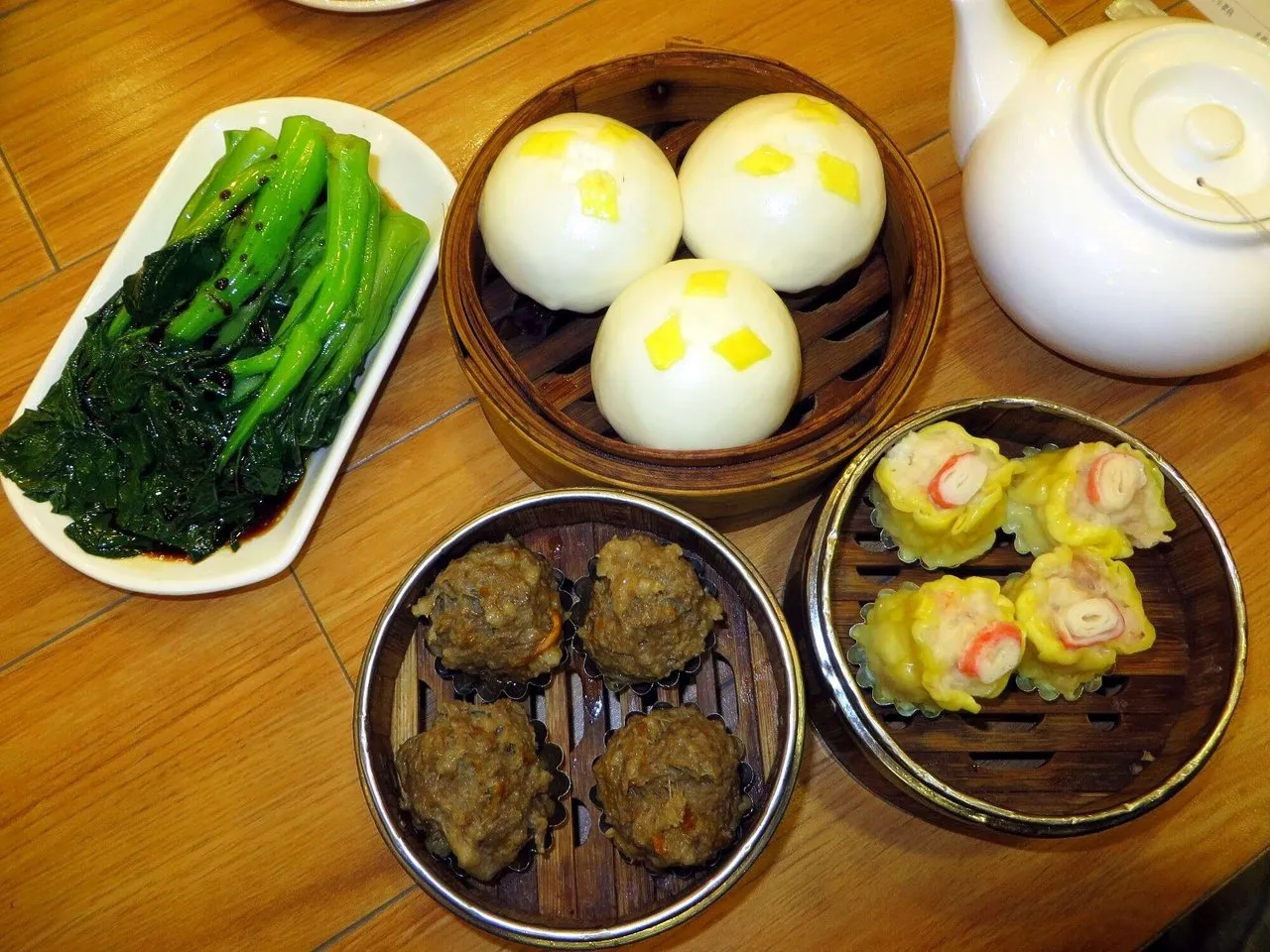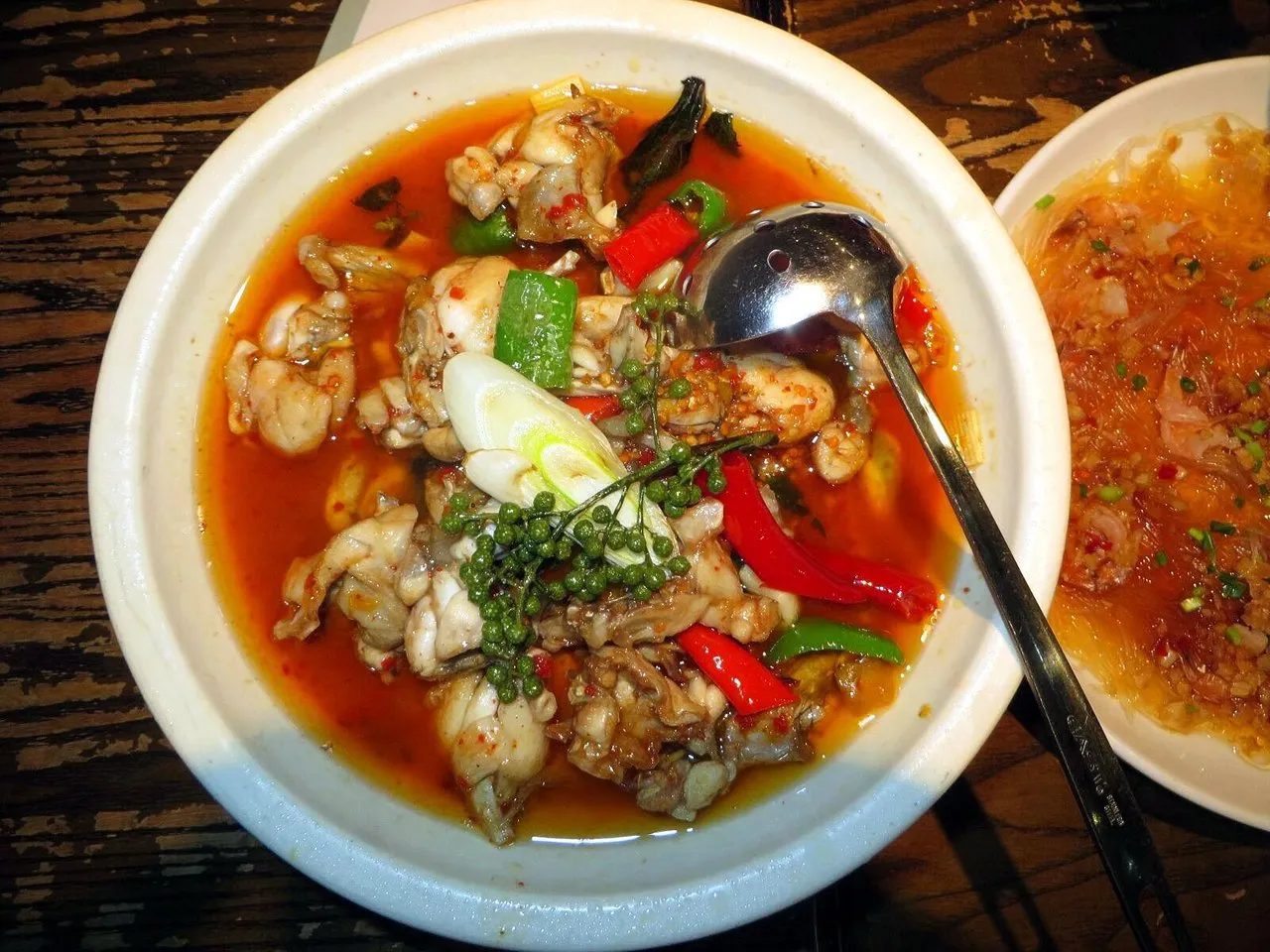
| In my last article about Pilkington's visit to China I talked about Chinese eating manners. This time it's mostly about specialty snacks. | In meinem letzten Beitrag über Pilkingtons Reise nach China setzte ich mich mit chinesischen Tischmanieren auseinander. Diesmal geht es eher um sehr spezielle Spezialitäten. |
|---|---|
| Pilkington visits a place where there is a number of stalls offering very special snacks beside some normal restaurants. Restaurants like that you'll find all over China. The street vendors, offering insects, scorpions or lizards on a stick are not so common. Here's the video: | Pilkington besucht einen Ort, wo es neben normalen Restaurants auch einige Freßstände mit sehr speziellen Snacks gibt. Restaurants wie dort gibt es überall in China. Die Straßenverkäufer, die Insekten, Skorpione oder Eidechsen am Stiel anbieten, sind nicht so normal. Zunächst das Video: |
| The video begins with Pilkington in a typical small town street (could also be the outer reaches of a bigger city), probably a poorer area. This is actually a place where I would usually get my food when I was living in China. That's where you find cheap meals in a decent quality. It's not the best food you can buy, but usually the best value for money. | Es beginnt mit Pilkington auf einer für Kleinstädte (oder Außenbezirke größerer Städte) üblichen Straße in einer vermutlich ärmeren Gegend. In einer solchen Gegend würde ich übrigens üblicherweise mein Essen kaufen, als ich noch in China lebte. Dort findet man billig ordentliches Essen. Nicht unbedingt die beste Qualität, aber meist das beste Preis-Leistungsverhältnis. |
|---|---|
| The small restaurants often have very limited room & preparation or cleaning is done on the street. That's what Pilkington comes across first. A guy is squatting in the street, slaughtering & dismembering frogs. | Die kleinen Restaurants haben oft wenig Platz & Vorbereitung sowie Spülen werden draußen erledigt. Das ist, was Pilkington zunächst sieht. Ein Mann hockt auf der Straße, um Frösche zu schlachten & auszunehmen. |
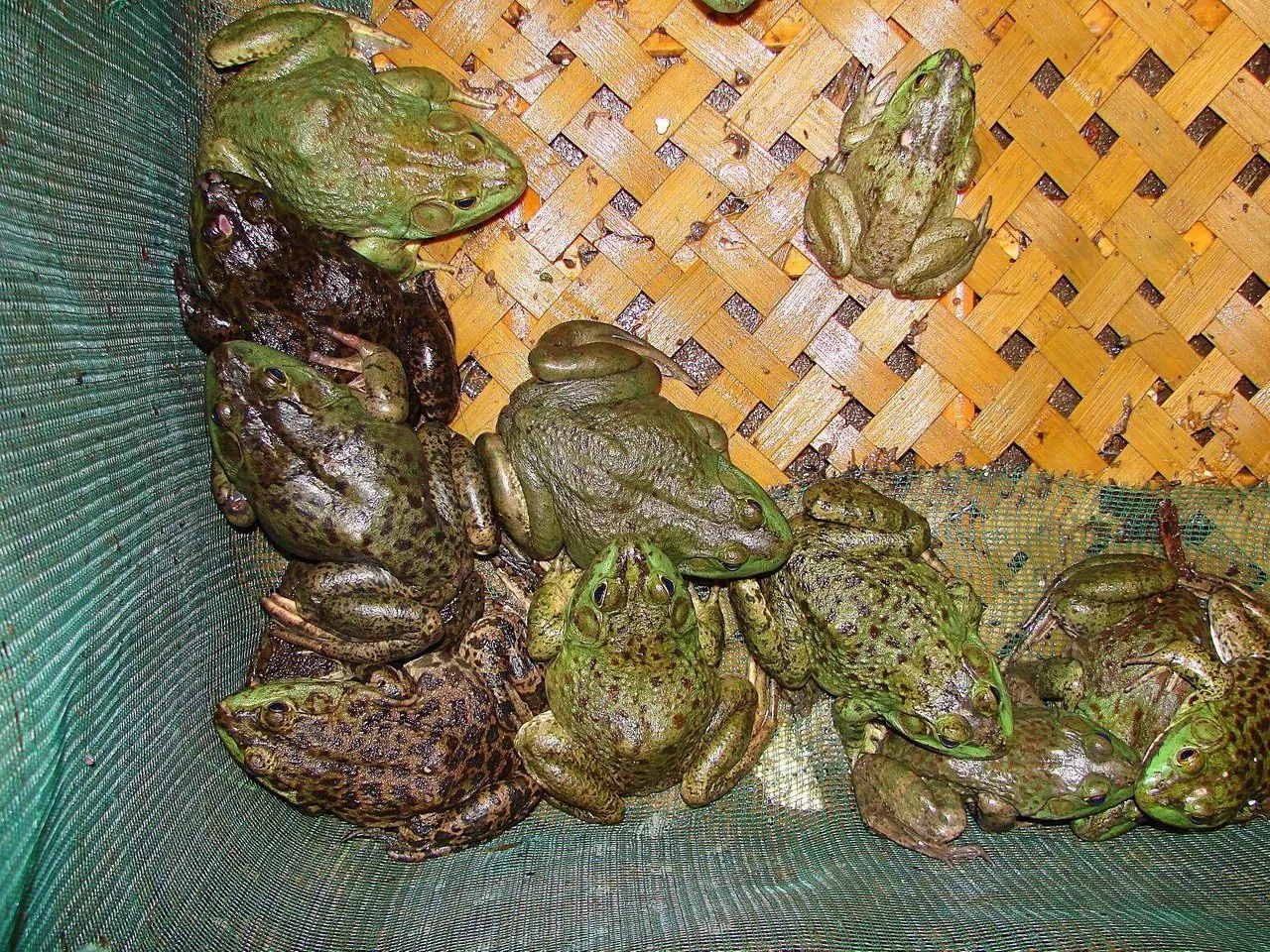
| The lack of hygiene is totally common all over China. In smaller places, this is the norm & noone cares. In more modern cities, restaurants at least put up the appearance of hygiene, often by having kitchens the guests can look into. Don't be fooled, though, the hygiene standards are still pretty low. Washing your hands after going to the toiled is almost unheard of, esp. using soap. | Der Mangel an Hygiene ist für China typisch. In kleineren Orten ist das die Norm & niemanden kümmert es. In etwas moderneren Städten versuchen Restaurants oft, sich wenigstens den Anschein von Hygiene zu geben, oft indem die Küchen durch Fenster zu sehen sind. Man sollte sich aber nicht irreführen lassen, die Hygienestandards sind auch dann ziemlich niedrig. Sich nach einem Toilettengang die Hände zu waschen, ist unerhört, insbesondere mit Seife. |
|---|---|
| Whenever the kitchen workers think nobody's watching, even basic hygiene goes out the window. Numerous times I saw people putting food that had fallen on the ground back to the other stuff, or - when they noticed me watching them - putting it aside, probably to return it later when noone's there to watch. | Dazu kommt, daß die Küchenmitarbeiter alle Hygiene fahren lassen, wenn niemand schaut. Habe oft genug sehen müssen, wie man Nahrungsmittel, die auf den Boden gefallen waren, einfach wieder zum anderen Kram dazulegte, oder - falls auffiel, daß ich zusah - das Zeug wurde zur Seite gelegt, wahrscheinlich, um es später doch wieder zu servieren. |
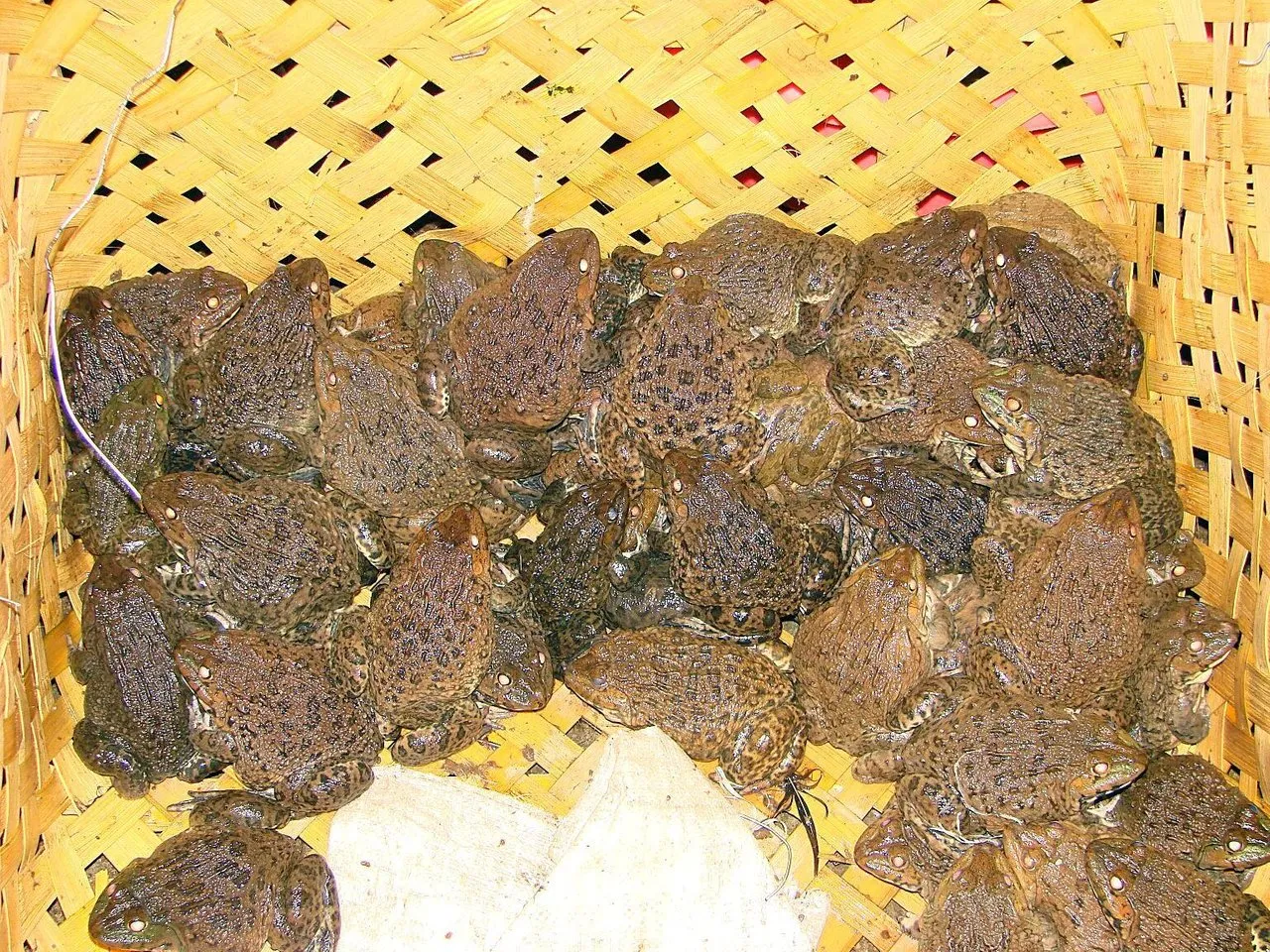
| Having live animals inside or in front of a restaurant is also very common in China. In many cases, the customers are supposed to choose the animal that they want to eat. This is supposed to prove how fresh the food is. You often don't see the actual killing, so you're not really sure that you get what you chose. | Lebende Tiere vor oder im Restaurant sind auch völlig normal. Das dient dazu, daß die Kunden sich die Tiere selbst aussuchen können, die sie essen wollen. So soll gezeigt werden, wie frisch alles ist. Die eigentliche Schlachtung sieht man aber oft nicht & man kann sich nicht wirklich sicher sein, ob man auch das Ausgesuchte bekommt. |
|---|---|
| Don't really understand why Pilkington is taken aback by the fact that the guy is slaughtering frogs (or "toads", as Pilkington says). Even in Europe, at least parts of frogs are considered a delicacy. But he is British, so maybe there is a certain anti-frog bias present. They probably don't call the French "frogs" for nothing. | Verstehe nicht wirklich, warum Pilkington so abgestoßen erscheint von der Tatsache, daß der Mann Frösche schlachtet. Immerhin werden zumindest Froschteile auch in Europa als Delikatesse angesehen. Aber er ist Brite, & deshalb vielleicht etwas voreingenommen. Nicht für nichts nennen Engländer Franzosen "Frösche". |
| Anyway, I don't understand the problem with the frogs. Actually, frog stew is one of my favourite dishes in China. The title photo shows one. The frog meat is very tender & even though I usually don't really like meat on the bone, in this case it doesn't really matter much. It very easily comes off. | Wie auch immer, ich sehe das Problem mit den Fröschen nicht. Frosch gehört zu meinen Lieblingsgerichten in China. Das Titelbild zeigt eine Art Schmortopf. Das Froschfleisch ist sehr zart & obwohl ich normalerweise Fleisch mit Knochen nicht sonderlich mag, macht es in diesem Fall keinen großen Unterschied, da es fast von selbst vom Knochen fällt. |
|---|---|
| Oh well, back to the video. The next thing we see is a bowl with what are obviously fish intestines. The stuff that acc. to Pilkington looks like condoms is actually fish bladders. They are also considered a delicacy in China, & are even used in medicine. So much so, that the Chinese demand is threatening fish species worldwide. | Zurück zum Video. Als nächstes sieht man eine Schüssel mit Fischinnereien. Was laut Pilkington wie Kondome aussieht, sind Fischblasen. Die werden in China auch als Delikatessen angesehen & ihnen wird auch medizinischer Wert zugesprochen. Chinesische Nachfrage ist so groß, daß weltweit dadurch Fischbestände bedroht sind. |
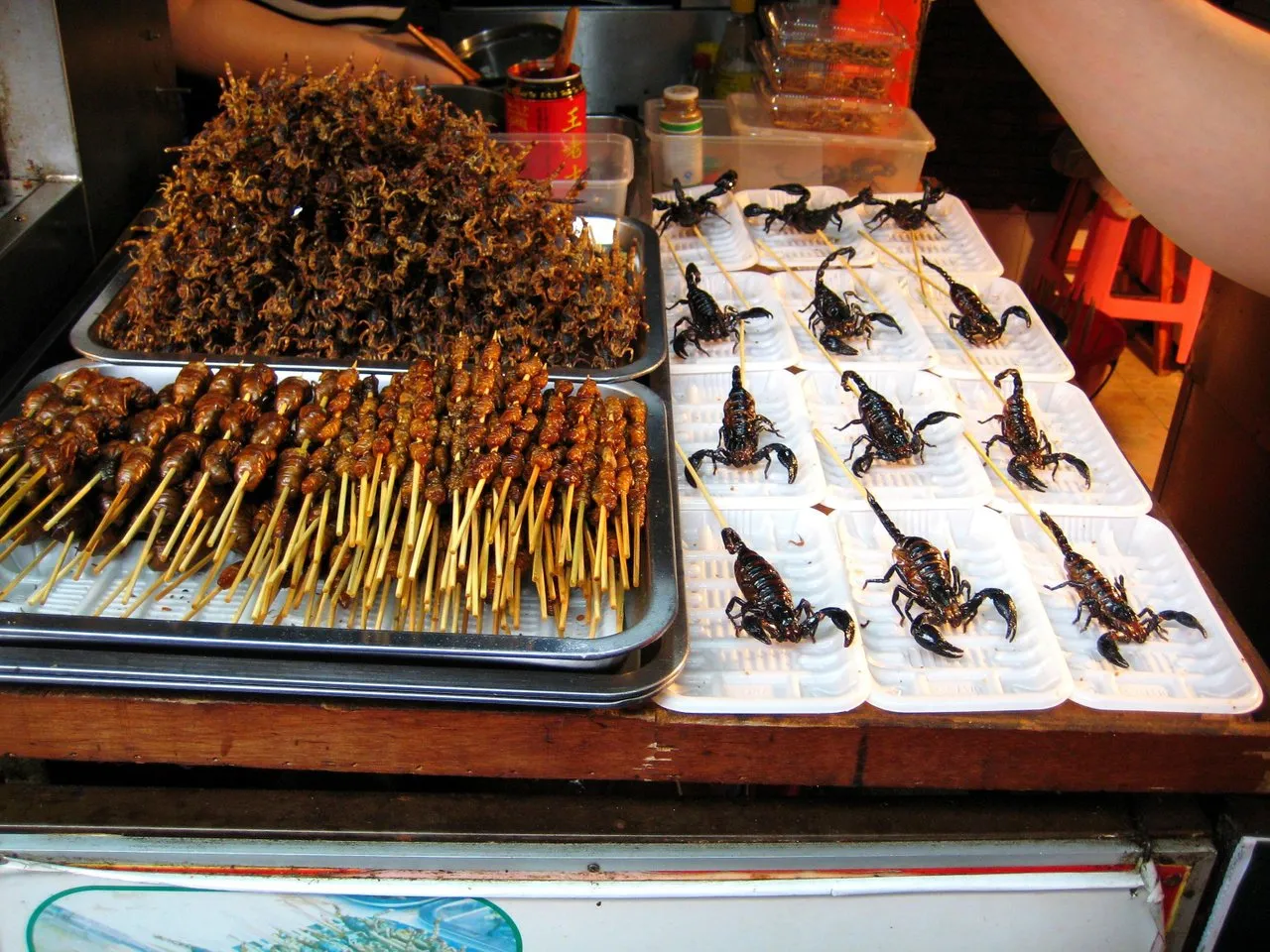
| Then he arrives at the specialty food stands. These are snacks that you won't find in many, probably most, parts of China. & most Chinese do not eat them as normal food. This is destined for tourists as some kind of novelty food. | Dann kommt er zu den Spezialitätenständen. Diese Snacks findet man nicht so ohne weiteres in den meisten Gegenden Chinas. & für die meisten Chinesen ist es auch kein alltägliches Essen. Das Zeug ist als Novum für Touristen bestimmt. |
|---|---|
| Most Chinese I know wouldn't even eat scorpions or insects in such a case. & except for Canton I have never seen eg. scorpions being sold alive for personal consumption. Only when I lived in Canton-City (Guangzhou), there was a wet market around the corner where they sold live scorpions. | Die meisten Chinesen, die ich kenne, würden Skorpione oder Insekten nicht mal probieren. & außer in Kanton habe ich nie gesehen, daß z.B. Skorpione lebend für die normale Küche verkauft werden. Nur als ich in Kanton (Guangzhou) lebte, habe ich lebende Skorpione auf einem Markt um die Ecke gesehen. |
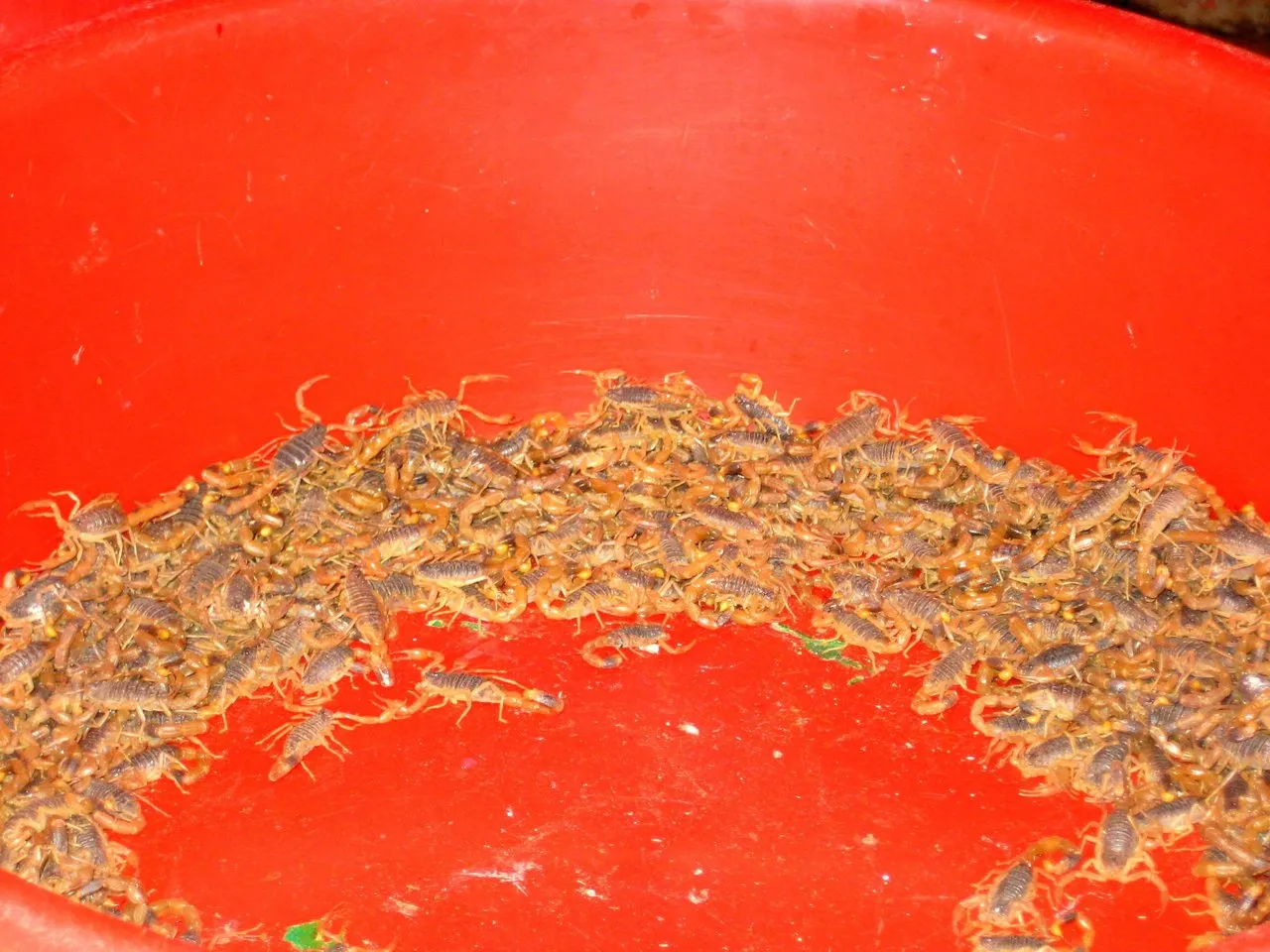
| & Cantonese are said (by Chinese) to eat pretty much anything that moves. That reminds me. In Canton-City, near Shamian Island, there are many shops for dried food stuff. There, I also saw dried lizards on a stick. Supposedly for people to buy & prepare at home. But that's it pretty much. | & Kantonesen essen angeblich (nach Meinung von Chinesen) so ziemlich alles, was sich bewegt. Das erinnert mich daran, daß es in Guangzhou, nahe Shamian, viele Läden mit getrockneten Lebensmitteln gibt. Dort sah ich auch mal getrocknete Eidechsen am Stiel. Vermutlich waren sie dafür bestimmt, zuhause zubereitet zu werden. Aber das wär's dann auch. |
|---|---|
| Most of the other stuff from these food stalls is novelty food, even by Chinese standards. It's mostly for tourists & only sold in places where tourists flock to. | Das andere, was diese Freßstände verkauften, ist selbst für chinesische Verhältnisse ungewöhnlich. Hauptsächlich wird es Touristen angeboten & nur in der Nähe von Touristenfallen verkauft. |
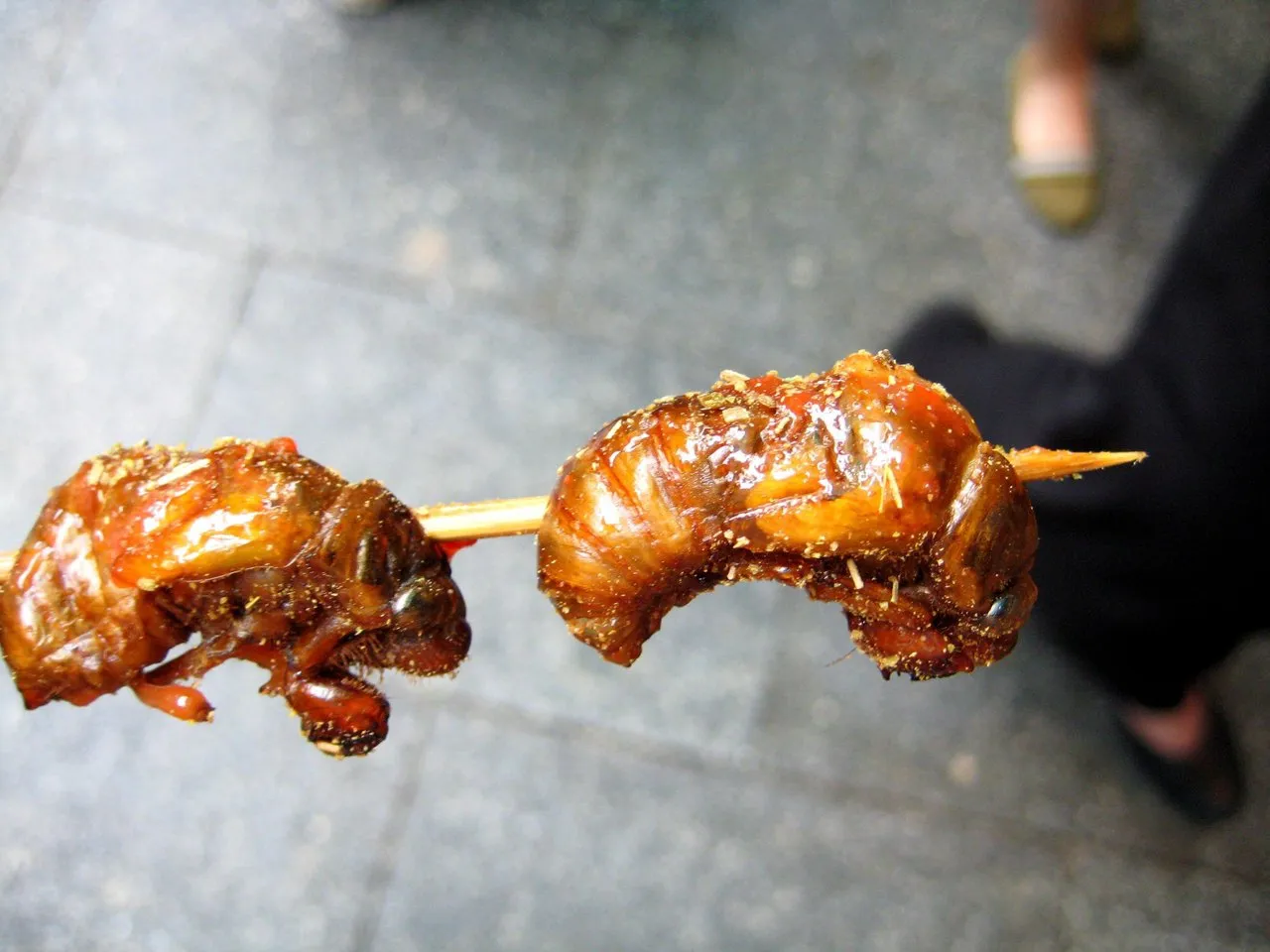
| Most of the stuff I tried - grasshoppers, silk pupae, cicadas - has actually no taste of its own. They prepare them with a lot of spices to mask that, but at least for me that doesn't make much of a difference. This stuff is overly expensive with a definite lack of taste. So I can't really recommend it. | Das meiste von dem, was ich probiert habe - Heuschrecken, Seidenpuppen, Zikaden - hat keinen Eigengeschmack. Es wird extrem stark gewürzt, um dies zu übertünchen, aber zumindest für mich machte es keinen großen Unterschied. Das Zeug ist überteuert & es fehlt an Geschmack. Also kann ich es nicht wirklich empfehlen. |
|---|---|
| At the end of the video we see again something which is less of a novelty food. Chicken eggs with partially developed embryos are actually pretty common in China. (BTW, the guy who eats it, is the same we saw slurping noodles in the other video.) Haven't seen it very often & not too many people actually seem to eat it, but it's common enough not to be labeled novelty food. | Am Ende des Videos sieht man wieder etwas, das eher normal ist. Hühnereier mit teilweise entwickelten Embryos findet man so ziemlich überall in China. (Übrigens ist der Typ, der das isst, der gleiche, der auch im letzten Video auftauchte.) Habe diese Eier zwar selber nicht allzu oft gesehen & nicht übermäßig viele Chinesen mögen sie, aber sie sind häufig genug, um keine besondere Spezialität zu sein. |
| Have never eaten it myself, but the way it looks in the video, I wouldn't have much of a problem with it. It's called maodan (毛蛋, máo dàn), in Nanjing you may find it on a menu as Huo zhuzi (活珠子, huó zhūzi). | Habe sie auch nie selber gegessen, aber so wie das Ei in dem Video aussieht, wäre es auch kein größeres Problem. Die Eier nennt man übrigens maodan (毛蛋, máo dàn), in Nanjing findet man sie vielleicht als Huo zhuzi (活珠子, huó zhūzi). |
|---|---|
| So, to in a summary, what you see in the video is not representative of Chinese cuisine. It's probably worth a try, if you come to China, but if you find it disgusting, don't worry. There is a lot more to Chinese food than this. | Zusammenfassend läßt sich sagen, daß das, was man in dem Video sieht, für die chinesische Küche nicht repräsentativ ist. Wenn man mal nach China kommt, kann man es u.U. mal probieren, aber man braucht sich auch keine Sorgen zu machen, wenn es einen anekelt. Das chinesische Essen bietet für fast jeden Geschmack etwas. |
